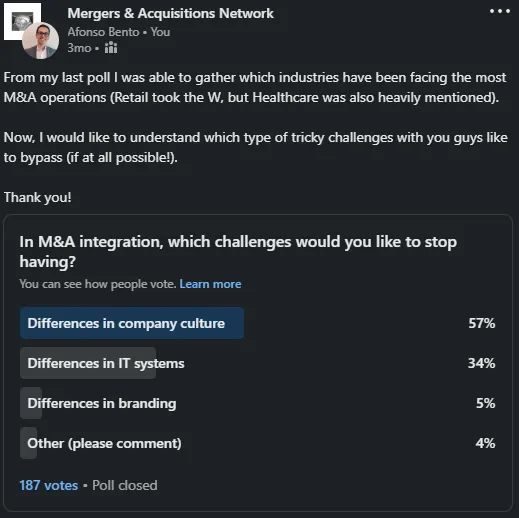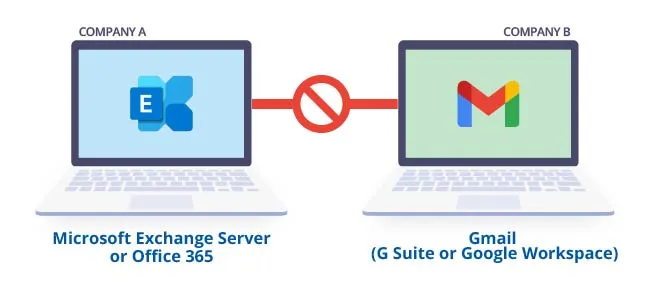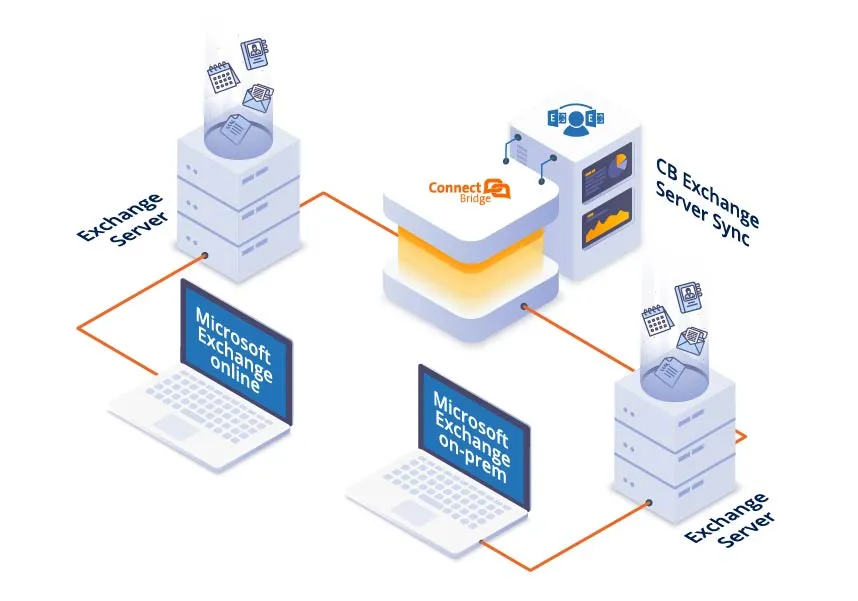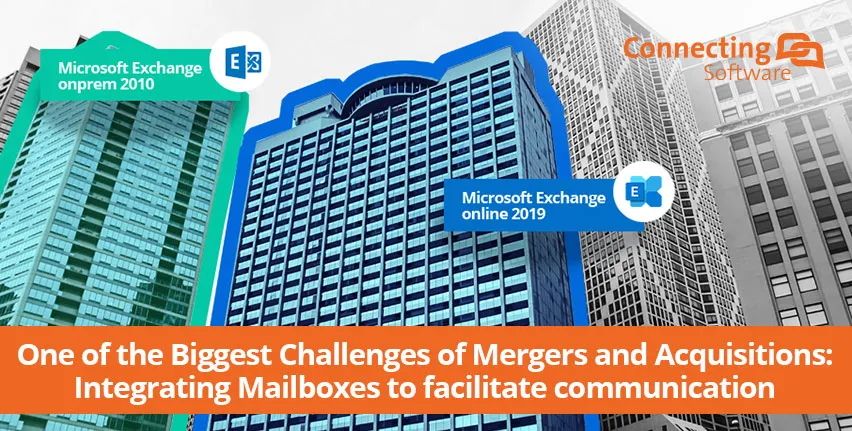Mergers & Acquisitions in numbers

Mergers and Acquisitions happen every day, all around the world. To give you an idea of how big the numbers are, in 2021 there were 21,107 M&A deals (Statista, 2022) – which means an average of around 58 deals closed per day.
The fact that M&A deals are closed daily in diverse industries is almost of common knowledge. Considering the digital age we all live in, it comes as no surprise that the technology, media and telecommunications sector dominates the largest amount of deals and of money ($941.1 billion in 2021, according to KPMG). What about other industries? Which ones have seen a lot of M&A deals? According to a poll run in a LinkedIn group with over 79,000 members, and answered by 561 people, retail, banking, and healthcare seem to have had a lot of M&A activity in recent years.
What are the challenges of mergers and acquisitions?

Mailbox integration – why do you need to do it?

Imagine that company A is merging with company B. The whole negotiation process is over, the deal is closed, and everyone has the same expectation of what the future holds. Now, it’s time to start operating as company A+B. Let’s look at this example: company A uses Outlook (Microsoft Exchange Server or Office 365) to communicate via email, to check calendar availability and to book meetings. On the other hand, company B uses Gmail (G Suite or Google Workspace) to perform the same tasks. What happens most of the times is that one of the companies will change their way of doing things – in other words, they will have to migrate their email and calendars (i.e., migrate from Exchange or Office 365 to G Suite or Google Workpace), since using different IT tools in the same team and organization can lead to huge inefficiencies and time wasting (see how much that wasted time can cost you at https://www.connecting-software.com/cb-exchange-server-sync/#roi-calculator).
Consequently, the employees from company A must have an email account created in Gmail so that the whole team is using the same IT system. But what about all the emails that are stored in their Outlook accounts from previous interactions with clients, suppliers, partners, etc.? Or the calendar appointments they have already booked in their calendar? Or that follow-up task for next month? That’s where CB Exchange Server Sync for Gmail and Google Workspace could come in to help and make the integration phase of the merger a much simpler, quicker and reliable step of the process.
CB Exchange Server Sync – The solution

With this simple solution, you can migrate calendars, contacts, emails, tasks, etc. from your previous email account to your new account. CB Exchange Server Sync can be used both for Exchange <-> Gmail scenarios, but also for Exchange <-> Exchange situations where companies use different versions of the Exchange Server (2010, 2013, 2016, etc.).
Use this software in Connecting Software’s SaaS platform, or install it in your own servers, and only share the data that is required for the solution to run. All you need to do is setup your sync pairs (in other words, from which account to which account should the items be synchronized) and after you are done syncing all the information, take your time to confirm you do not need the original account by using both simultaneously before deleting it.
Use-case examples
- Migration of mailboxes after a merger or acquisition, bringing them all to the same server;
- Migration of mailboxes after a de-merger or split of companies, so that each one has their own server;
- Synchronization of calendars to a centralized calendar (ex: meeting room calendar);
Benefits of using CB Exchange Server to perform your mailbox migration/mailbox synchronization
- Mailbox coexistence between servers and domains during M&A integration phases;
- Smooth migration, with zero downtime (i.e. you can run both mailboxes simultaneously until you are ready to move on completely);
- Centralized management of calendars, contacts, tasks, notes, emails, public folders, etc. after mailbox synchronization;
- Synchronization across all devices, since CB Exchange Server Sync synchronizes your data on the server-side;
- Lower company costs due to less time spent managing emails and/or altering meetings (see more information on this at https://www.connecting-software.com/cb-exchange-server-sync/#roi-calculator);

You have a mailbox migration/integration/synchronization challenge? Bring it to us!
Mergers & Acquisitions deals can lead to very challenging IT integrations, so it is crucial that you have the necessary solution to ensure a smooth process, with no cutover until everything is ready. You can find more about how to sync and migrate accounts seamlessly when you are having problems with email migration under M&A projects at https://www.connecting-software.com/blog/troubles-with-email-merged-companies-sync-calendars-different-exchange-servers/.
Check out what else you can use this solution for at https://www.connecting-software.com/cb-exchange-server-sync/ and reach-out to us so we can help you tackle this challenge!
